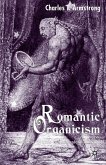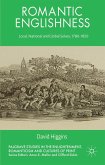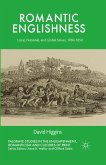Waterloo and the Romantic Imagination offers a new and challenging look at the cultural significance of the Battle of Waterloo, and the impact it had on British Romantic culture. Drawing on a range of approaches it aims to redefine the Romantic period as an age of inter- and intra-national conflict, thus overturning conventional notions of 'The Romantic Project', and re-writing the period from first principles. Topics covered include: the impact of Waterloo on Romantic ideas of individual and national identity, the representation of the dead and wounded in poetry, painting and prose, the work of canonical and non-canonical poets.
Hinweis: Dieser Artikel kann nur an eine deutsche Lieferadresse ausgeliefert werden.
Hinweis: Dieser Artikel kann nur an eine deutsche Lieferadresse ausgeliefert werden.
'Waterloo and the Romantic Imagination is a stimulating and exciting book, written with authority and intelligence...' - Simon Bainbridge, Department of English, Keele University
'This study of the British literary response to Waterloo is a book about endings: the ending of the long war with France, the ending of forty thousand lives...an ambitious and intelligent book from which we can all learn.' - Gavin Edwards, University of Glamorgan Literature and History
' [A] persuasive and thorough analysis.' - Gillen D'Arcy Wood, University of Illinois, USA
'This study of the British literary response to Waterloo is a book about endings: the ending of the long war with France, the ending of forty thousand lives...an ambitious and intelligent book from which we can all learn.' - Gavin Edwards, University of Glamorgan Literature and History
' [A] persuasive and thorough analysis.' - Gillen D'Arcy Wood, University of Illinois, USA








